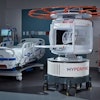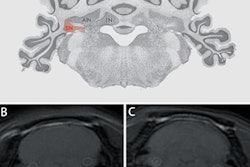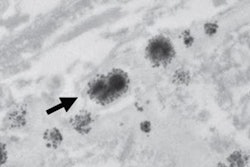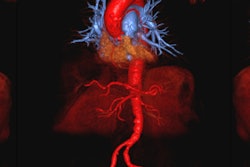Researchers from the Massachusetts Institute of Technology (MIT) and the University of Nebraska have developed a metal-free MRI contrast agent that could be safer for pediatric imaging and patients with kidney issues, according to a study published online July 12 in ACS Central Science.
The compound contains organic molecules called nitroxides that have been shown to remain in the bloodstream for up to 20 hours, accumulating at tumor sites. The thought is that the agent might replace gadolinium-based contrast agents (GBCAs), which have been shown to linger in human tissue years after injection.
In most patients, GBCAs are eliminated by the kidneys within a half-hour. However, in patients with renal issues, gadolinium can stay in the body and exacerbate the kidney damage.
The compound the researchers developed has a high density of nitroxide molecules to increase MRI relaxivity. The most effective contrast agents have high relaxivity, which enhances the visual contrast between an organ and surrounding tissue.
The particles could also be designed to carry both contrast and therapeutic agents, which would allow for long-term imaging and monitoring of a tumor as it is treated, said senior author Jeremiah Johnson, PhD, in a statement from MIT.
Another possibility is attaching the contrast agent to immune cells engineered to attack a patient's tumor, allowing the cells to be tracked inside the body.



.fFmgij6Hin.png?auto=compress%2Cformat&fit=crop&h=100&q=70&w=100)




.fFmgij6Hin.png?auto=compress%2Cformat&fit=crop&h=167&q=70&w=250)











